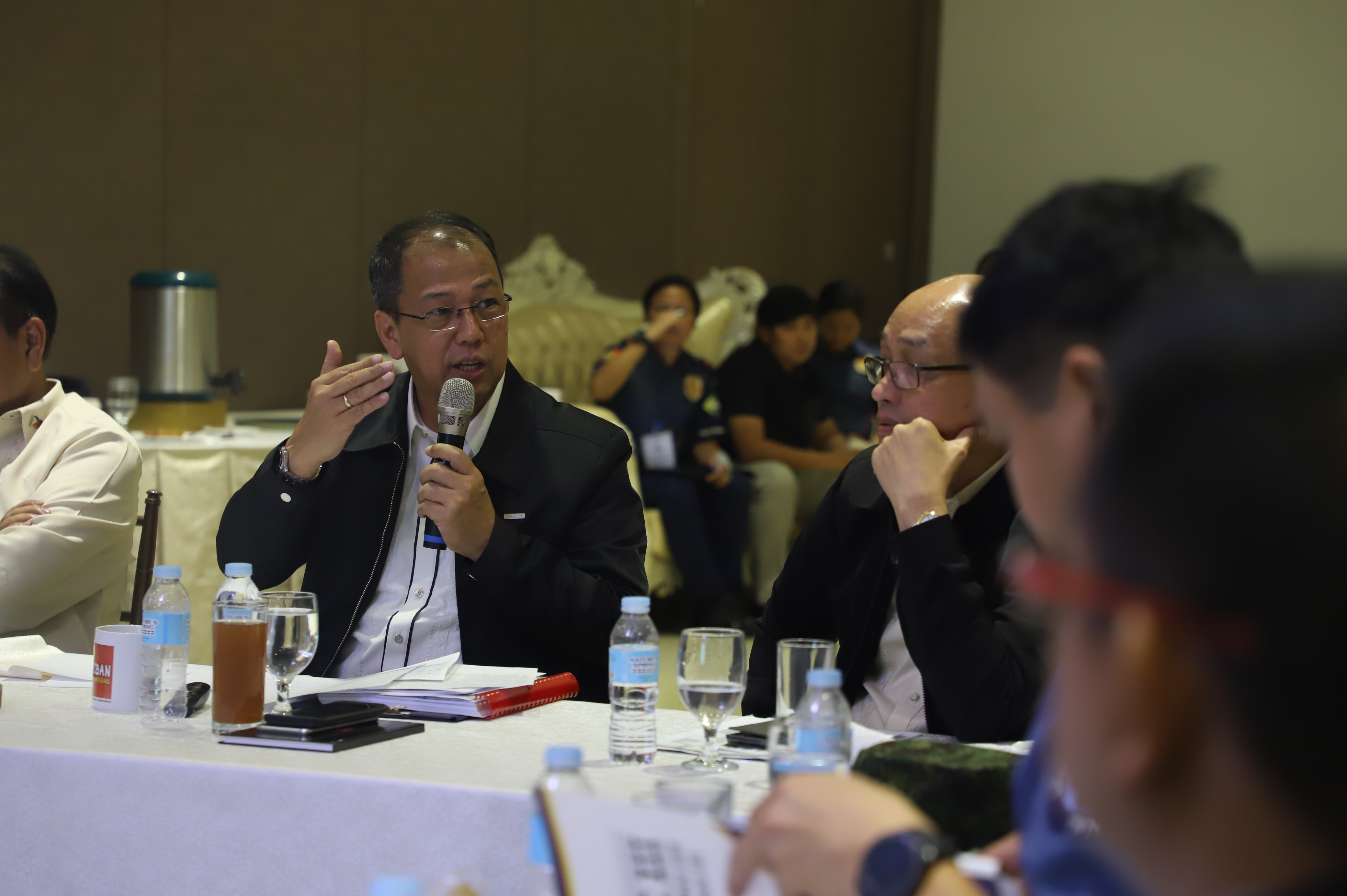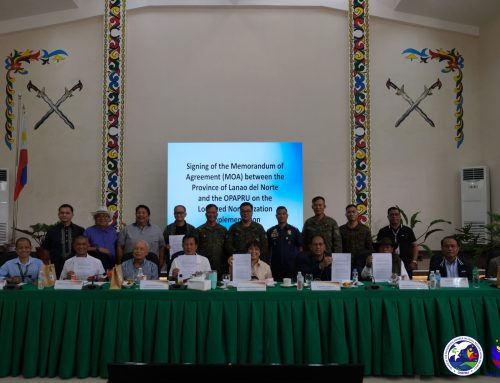SAN FERNANDO, PAMPANGA, 22 May 2019 – Following President Rodrigo Duterte’s creation of the Cabinet Officer for Regional Development and Security (CORDS) early this month, the regional body tasked to look after Region III hit the ground running Thursday by formalizing its regional structure in line with the whole-of-nation approach to end communist insurgency.
Created last May 6, President Duterte through CORDS has delegated at least 16 Cabinet Members to oversee the peace and development efforts in their regions of assignment and “assist the President in the speedy, efficient and orderly resolution of problems in government operations.”
The body is a mechanism that aims to link regional and sub-regional levels of government to national agencies in order to harmonize peace, development and security efforts and consequently, resolve the nation’s decades-long insurgency problem.
Presidential Peace Adviser Carlito G. Galvez Jr, who was designated to lead the CORDS in Region III or Central Luzon, met with the top officials of the security sector and the different government line agencies in the area to sync their efforts and bring the needed interventions to eradicate the threat of insurgent group.
Among those highlighted in the organizational meeting is the strengthening of the cooperation and convergence among government agencies and stakeholders to effectively implement national government’s renewed efforts to address the communist insurgency in the country.
Galvez said there is correlation in the state of peace and order and economic situation.
Central Luzon sits as the third biggest regional economy in the country. In 2018, it posted 9.8% gross regional domestic product and it averages 7.1% GRDP year-on-year growth.
Its regional poverty incidence for 2018 among population also declined to 10.3%, from 14.7% in 2015 while poverty incidence among families dropped to 7.8% in 2018 from 12.2% in 2015.
With the favorable economic climate, Leon M. Dacanay, the regional director of the National Economic Development Authority (NEDA), said the expansion of the industries and the full development of special economic zones are also being pursued in the region.
“The growth in operations of these special customs territories will play a very important role in further bolstering economic transformation and eradicating social discontent in the region,” he said.
For its part, National Intelligence Coordinating Agency (NICA) Assistant Regional Director Agnes Totanes said the Communist Party of the Philippines (CPP) is still trying to take advantage of the labor groups.
“CPP’s utilization of workers through the formation and mobilization of legal fronts, underground and armed organizations, and other propaganda movements [seek] to exploit issues on the labor sector,” Totanes said.
Lt. Col. Rolando Bautista of the Philippine Army’s 7th Infantry Division explained that the activities his organization intends to carry out are primarily meant to counter the propaganda of the communist insurgents.
Bautista said this campaign “will dismantle these mass mobilizations through a strategic stakeholders’ convergence to ensure peace, security, stability and development in Central Luzon.”
Galvez stressed that promoting and implementing good governance practices will be the key in addressing the root causes of insurgency.
“It is very important for us to frame our minds of the President’s directive, which is to promote and put into practice the aspect of good governance. It is an effective tool to address the underlying factors that breed insurgency in our country,” Galvez said.
According to him, regional and sub-regional governments have a key role “in taking the lead in fighting insurgency the country.”
“Our concentration will be at the province, considering that it is the integrator of all the different local units in the area,” Galvez said.
“We are also looking into it that the framework is a good venue for us to concentrate and integrate our peace, development, and security efforts,” he added.
The CORDS meeting was held in line with the implementation of Executive Order (E.O.) 70 or the Whole-of-Nation approach in ending local armed conflict.
This is the new policy being adopted by the national government after President Duterte officially terminated the peace talks between with Philippine Government and the Communist Party of the Philippines-New People’s Army-National Democratic Front (CPP-NPA-NDF).
As part of the National Task Force to End Local Communist Armed Conflict (NTF-ELCAC), the Office of the Presidential Adviser on the Peace process shall be among those which will take the lead in this inter-agency convergence mechanism particularly on the Local Peace Engagements.
This is dovetailed to the of National Peace Framework that will address the root causes of insurgencies, internal disturbances and armed conflicts in identified local areas.
“At this point, it is vital for us to remain focused, united, and committed on our task at hand for us to prevail. Let us make this happen,” Galvez concluded.
Present during the CORDS meeting were representatives from the Department of Interior and Local Government Unit, National Intelligence Coordinating Agency, National Security Council, National Economic Development Authority, Armed Forces of the Philippines and PNP. ###












